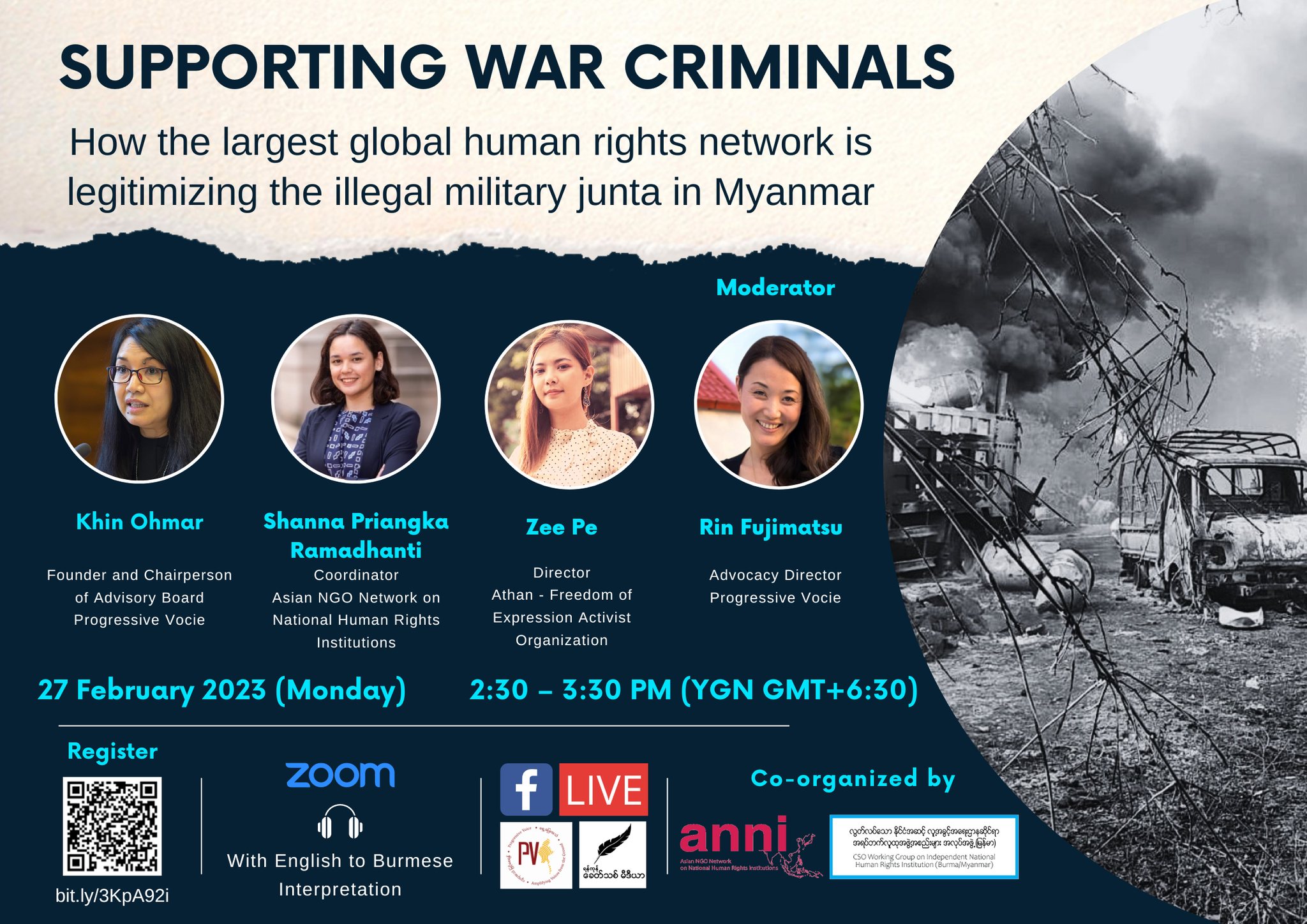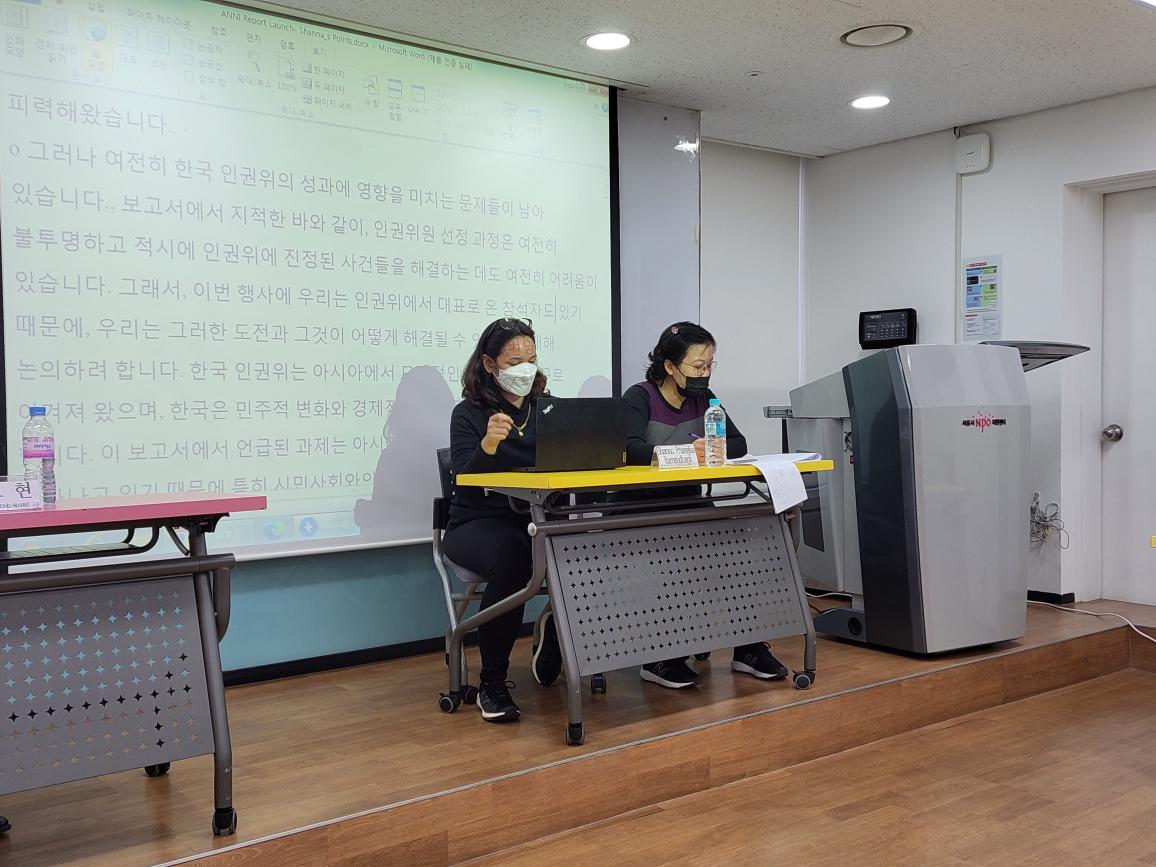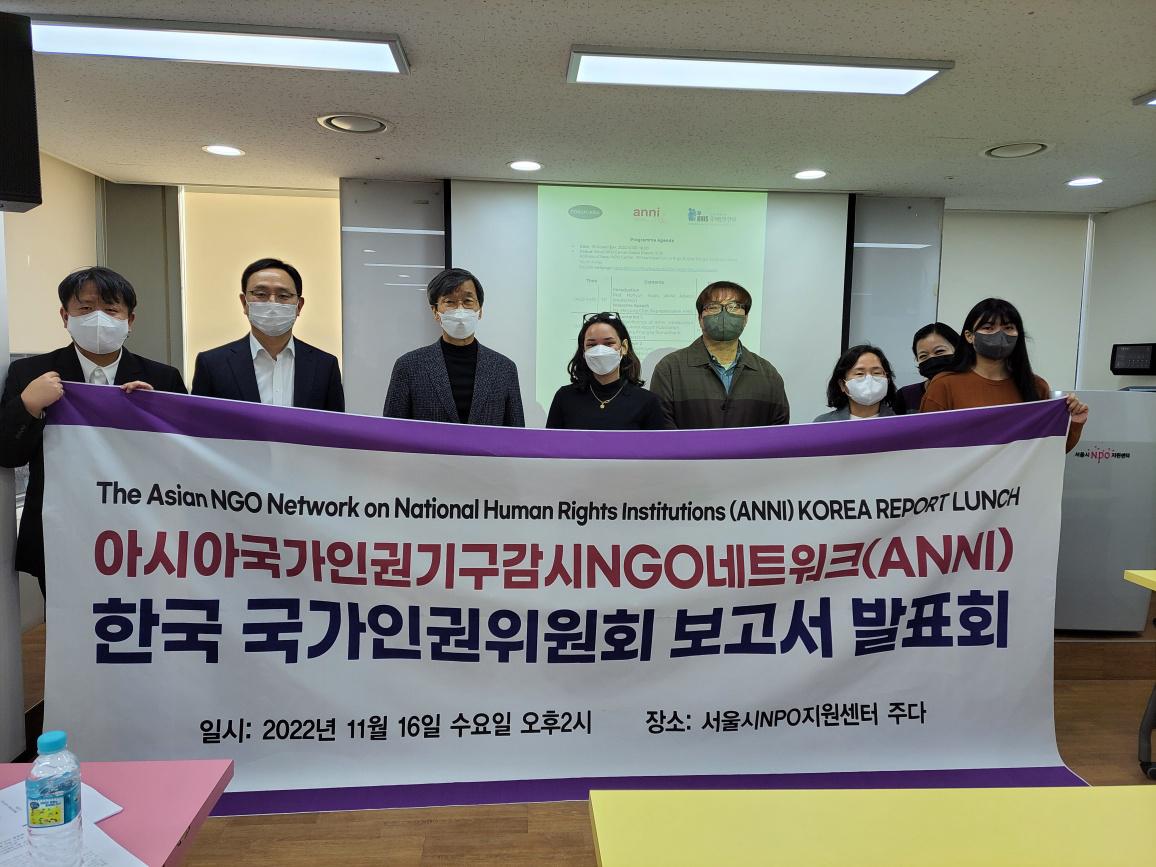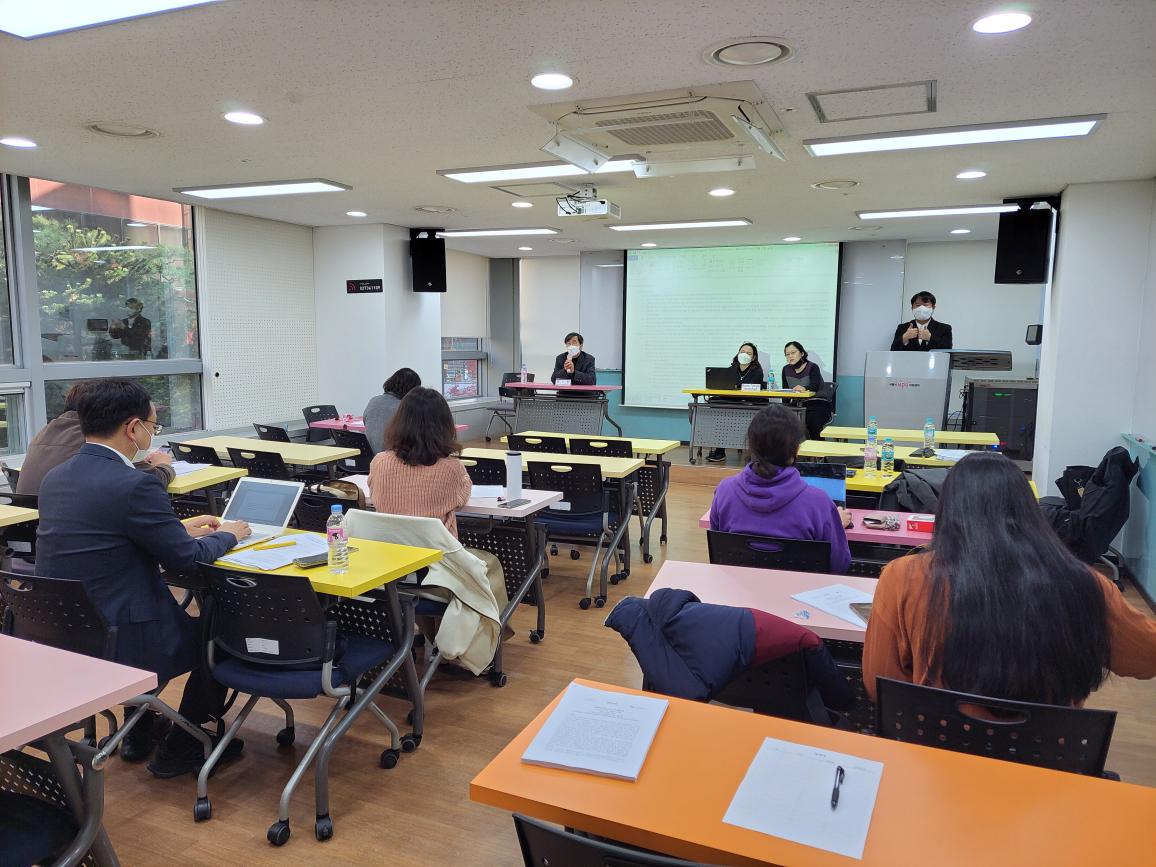To
H.E. Mr. Suk Yeol Yoon
The President of the Republic of Korea
21 June 2024
Open Letter to the President of the Republic of Korea (ROK)
Re: Ensure compliance with international human rights standards in NHRCK Chairperson recruitment, for Korea to truly become a Global Pivotal State
Honourable President Mr. Suk Yeol Yoon,
The Asian NGOs Network on National Human Rights Institutions (ANNI), a network of Asian non-governmental organisations and human rights defenders (HRDs) working on issues related to National Human Rights Institutions (NHRIs), urges compliance with the Paris Principles and other international human rights standards in the recruitment of the next Chairperson of the National Human Rights Commission of Korea (NHRCK), in order for Korea to truly become a Global Pivotal State.
ANNI notes that the NHRCK has been a good example for NHRIs in Asia, including holding the current Chairpersonship of the Asia Pacific Forum of National Human Rights Institutions. Unfortunately, however, several concerns have been raised about the NHRCK since May 2022:
- We are deeply concerned about the anti-human rights behaviour exhibited by some of the Standing Commissioners. In July 2023, we sent an open letter[1] to the NHRCK regarding Commissioner Lee Chung-sang’s anti-human rights comments about social minorities, including the LGBTIQ+ community and victims of human rights violations. Unfortunately, Commissioner Lee Chung-sang’s anti-human rights stance remains unchanged since our letter. Additionally, Commissioner Kim Yong-won too has taken an anti-human rights position on the abolition of the death penalty recently, wherein he remarked that “human rights are guaranteed to humans, not to animals disguised as humans.”[2]
- While the NHRCK has consistently recommended the enactment of anti-discrimination laws in its independent report to the United Nations (UN) human rights mechanisms including the treaty bodies and the Universal Periodic Review of the Korean government, the NHRCK’s independent report, which is submitted to the Convention on the Elimination of All Forms of Discrimination Against Women, omitted the recommendation on the enactment of an anti-discrimination law under the leadership of the two Standing Commissioners (Lee Chung-Sang and Kim Young-won). This is a very serious departure from the NHRCK’s position on equal rights.[3] This situation has been repeated even ahead of the Convention Against Torture’s (CAT) deliberation on the Korean government, which is scheduled for July this year. As discussions on the independent report to be submitted by the NHRCK have been delayed due to the two commissioners’ raising of anti-human rights issues, the NHRCK has still failed to adopt the independent report submitted to CAT.[4] This marks the first instance where the anti-discrimination law has been omitted from the independent report submitted by the NHRCK to the UN, placing the country at risk of missing the deadline. Given the importance of independent reports from NHRIs, it is regrettable that the NHRCK is regressing on the human rights standards recommended by the UN.
- This is not the only issue disabling the functioning of the NHRCK. The NHRCK has been dealing with complaints in its sub-committees. If a sub-committee of three commissioners fails to reach a conclusion on a petition, it has been customary for the case to be addressed by the full plenary committee of all 11 commissioners.
But Lee Chung-sang and Kim Yong-won are leading the call for a vote in the sub-committee,[5] a move that has received the support of the other four non-standing commissioners as well. With no conclusion on whether these arguments are appropriate, commissioners Lee Chung-sang and Kim Yong-won are arbitrarily voting on cases at the sub-committee, and many complaints are also being dismissed.[6] Given their anti-human rights position and the complaints they have opposed, including issues related to persons from the LGBTIQ+ community, several cases are likely not being dealt with adequately by the NHRCK.
- Above all, these commissioners have acted in a manner unbefitting of their esteemed positions within an NHRI. Previously, these two standing commissioners asked the police to investigate the bereaved families of victims whose human rights were violated in the military, and also other HRDs. According to the commissioners’ claims, the bereaved families and HRDs detained them from leaving the office. However, at that time, the bereaved families were simply demanding a meeting with the Chairperson of the NHRCK.
It is debatable if the commissioners’ claims are true. This is because 77 NHRI staff members filed a petition with the police[7] to not investigate or punish the bereaved families and HRDs. The fact that so many staff members of the Commission filed petitions for what the two Standing Commissioners did, provides an insight into the nature of the case and about the Standing Commissioners’ hostile attitude toward civil society. This is a direct rejection of the NHRI’s core operating principle: cooperation with civil society.
- Most disturbingly, Commissioners Lee Choong-sang and Kim Yong-won have also engaged in intimidating behaviour toward their fellow commissioners and employees, even in public meetings.[8] Commissioners responsible for human rights must embody a pro-human rights attitude in both their words and actions. Testimony from Korean human rights activists who observed the meeting reveals they experienced severe mental distress due to the commissioners’ shocking behaviour. Their actions and words have not only caused pain to people in their public meetings, but also to employees of the Commission in their everyday professional lives.
With the expiration of the current term of Chairperson Song Doo-hwan in September 2024, ANNI notes that the process for you, President Yoon Suk Yeol, to elect the next Chairperson of the NHRCK will begin in June 2024.
We also know that you have elected Commissioners through a total of seven recommendation committees involving civil society: three recommended by the presidential office, three recommended by civil society, and one recommended by the Korean Bar Association. This procedure itself has been passed down successively to your office since former President Moon Jae In accepted the demands of the international community and of Korean civil society.
However, we do note that despite these procedures, the Commissioners elected by you have taken the lead in neutralising the functioning of the NHRCK with their opposition to international human rights standards, or are sympathetic to this neutralisation. A case in point is Commissioner Kim Yong-won.
ANNI believes that the next Chairperson of the NHRCK should be a person who has the will to protect the human rights of the socially disadvantaged, including the rights of LGBTIQ+ persons, in accordance with the Paris Principles and other international human rights standards. Unfortunately, until now, the Commissioners nominated by your office have not exhibited this commitment.
The NHRCK has long been an exemplary NHRI in Asia and a model for the international community. To advance human rights in Asia, the NHRCK must continue to act as a credible institution trusted by civil society. This will inspire other NHRIs and positively impact human rights defenders across the region.
ANNI recalls your government promising to contribute greatly to the protection of freedom in the international community. In order to protect freedom, we need the NHRI to do its part. We strongly demand and look forward to your careful and considerate choice for the NHRCK Chairperson.
For the recruitment of the next Chairperson of the NHRCK, we urge you to nominate a candidate who:
- Can comply with, and can properly implement, international human rights norms including the Paris Principles;
- Can create a culture in which human rights are respected within the NHRCK, by respecting the personality of the Commissioners as well as of the staff;
- Has the capacity and expertise to contribute to the development and establishment of NHRIs in the Asian region, as well as serve as an example to the international community; and
- Can make efforts to ensure that the Korean government’s human rights policy can be implemented based on international human rights standards.
We thank you for your kind consideration on this matter.
Yours sincerely,
- Asian Forum for Human Rights and Development (FORUM-ASIA);
- Korean House for International Solidarity (KHIS), South Korea;
- Cambodian League for the Promotion & Defense of Human Rights (LICADHO), Cambodia;
- Informal Sector Service Centre (INSEC), Nepal;
- Joint Action for NHRI and Optional Protocols in Japan (JANOP), Japan;
- Judicial System Monitoring Program (JSMP), Timor-Leste;
- People’s Empowerment Foundation (PEF), Thailand;
- Bytes For All, Pakistan;
- Ain o Salish Kendra (ASK), Bangladesh;
- Odhikar, Bangladesh;
- The Commission for the Disappeared and Victims of Violence (KontraS), Indonesia;
- Philippine Alliance of Human Rights Advocates (PAHRA), Philippines;
- Cambodian Human Rights and Development Association (ADHOC), Cambodia;
- Law and Society Trust (LST), Sri Lanka;
- CSO Working Group on Independent National Human Rights Institution (Burma/Myanmar);
- All India Network of NGOs and Individuals working with National and State Human Rights Institutions (AiNNI), India;
- Centre for Human Rights and Development (CHRD), Mongolia;
- Suara Rakyat Malaysia (SUARAM), Malaysia; and
- Maldivian Democracy Network (MDN), Maldives
About the Asian NGO Network on National Human Rights Institutions (ANNI)
The Asian NGOs Network on National Human Rights Institutions (ANNI) was established in December 2006. It is a network of Asian non-governmental organisations and human rights defenders working on issues related to National Human Rights Institutions (NHRIs). ANNI currently has 33 member organisations from 21 countries or territories. ANNI members work on strengthening the work and functioning of Asian NHRIs to better promote and protect human rights as well as to advocate for the improved compliance of Asian NHRIs with international standards, including the Paris Principles and General Observations of the Sub-Committee on Accreditation (SCA) of the Global Alliance of NHRIs (GANHRI). The Asian Forum for Human Rights and Development (FORUM-ASIA) has served as the Secretariat of ANNI since its establishment in 2006.
Website: http://l.forum-asia.org/ANNI
[1] https://forum-asia.org/open-letter-the-anti-human-rights-behaviour-of-lee-choong-sang-a-standing-commissioner-of-the-national-human-rights-commission-of-korea/
[2] https://www.pressian.com/pages/articles/2024060518472190948
[3] https://www.kukinews.com/newsView/kuk202403260346
[4] https://www.hani.co.kr/arti/society/society_general/1140803.html?fbclid=IwZXh0bgNhZW0CMTEAAR0R-8raAZUOtyJHfKyrj-KLtcTK3KtweAqzhfv6EoGve9TKGXH_ZjChYeE_aem_AXqUeLG_iSrCpvMbPuZO3KXrGaTXGXxav9Q0iax_eWzyCadO8ZM4-VUohCK_kcR60M0G811yW1m1d3oIdpU_GzwT#ace04ou
[5] https://www.sisain.co.kr/news/articleView.html?idxno=51580
[6] https://www.hani.co.kr/arti/society/society_general/1130037.html
[7] https://www.hani.co.kr/arti/society/society_general/1135433.html
[8] https://www.hani.co.kr/arti/society/society_general/1132625.html
##
For the PDF version of this statement, click here
This post was originally published on FORUM-ASIA.

 On 16 November 2022, the Asian NGO Network on National Human Rights Institutions (ANNI), together with the Korean House for International Solidarity, launched the South Korean chapter of the
On 16 November 2022, the Asian NGO Network on National Human Rights Institutions (ANNI), together with the Korean House for International Solidarity, launched the South Korean chapter of the 

